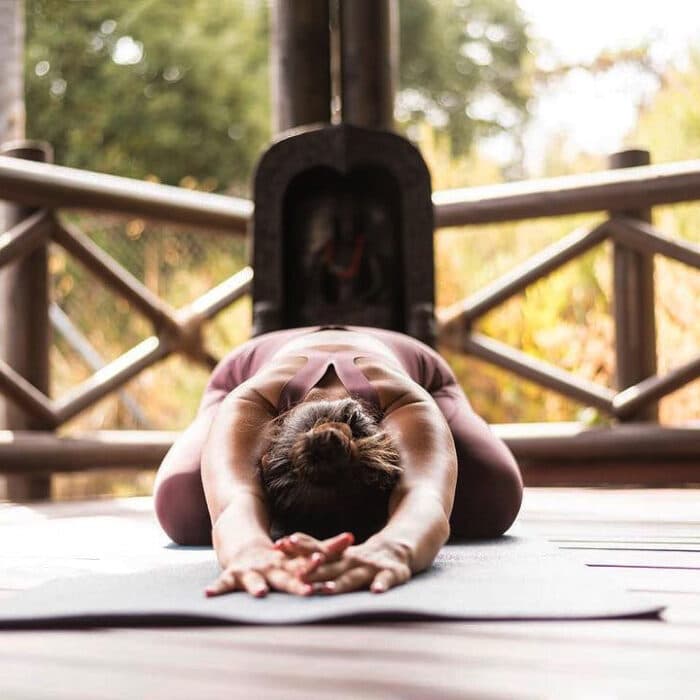3 Easy Ways to Boost Your Immune System
Growing concerns about COVID-19 has caused a surge in online searches on our immune system. In addition to proper handwashing, what else can you do to improve your health? One area that is squarely in your control is your immune system.
What is our Immune System?
The immune system is made up of special organs, cells and chemicals that fight infection (microbes).
Your immune system is incredibly complex. It has to be strong enough and sophisticated enough to fight off a variety of illnesses and infections. However not so strong that it overreacts unnecessarily causing allergies and other autoimmune disorders to develop. To operate in such a delicate balance, your immune system is tightly controlled by a variety of inputs.
But despite its complexity, there are everyday lifestyle habits you can focus on to help your immune system.
6 Signs of a Low Immune System
If you notice that you’re often sick, feel fatigued or have other nagging symptoms you can’t figure out, it may mean your immune system is weak.
Symptoms of a low immunity may include:
- You feel tired all the time– if you’re getting enough sleep but still feeling sluggish this can be a sign that your immune system is struggling. Your body is conserving energy to fight off germs.
- Your stress levels are high– you may notice you tend to get sick after a big project or emotional situation. This is not a coincidence and studies have shown long term stress weakens the responses of your immune system.
- You always have a cold– most adults get a cold 2 -3 times a year and it takes about 7-10 days to bounce back. If yours are occurring more frequently this may mean your immune system is weak.
- You have lots of tummy troubles– frequent diarrhea, gas or constipation. Research shows that nearly 70 percent of your immune system is located in your digestive tract.
- Your wounds are slow to heal– your bodies healing process depends on a health immune system so if your wounds linger for a long time it means your immune system is not strong enough to regenerate your skin.
- You have frequent infections– ear infections, developing pneumonia, sinusitis or needing more than two courses of antibiotics a year are signs of a low immune system.

Immune System and Age
As we age, our immune response capability becomes reduced. This in turn contributes to more infections and more cancer. As life expectancy in developed countries has increased, so too has the incidence of age-related conditions. The conclusion of many studies is that compared with younger people, the elderly are more likely to contract infectious diseases and more likely to die from them. Respiratory infections, including, influenza, the COVID-19 virus and particularly pneumonia are a leading cause of death in people over 65 worldwide.
There appears to be a connection between nutrition and immunity in the elderly. A form of malnutrition that is surprisingly common even in affluent countries is known as “micronutrient malnutrition”. Micronutrient malnutrition, in which a person is deficient in some essential vitamins and trace minerals can happen in the elderly. Older people tend to eat less and often have less variety in their diets.
How to Boost Your Immune System
With so much information online, we’ve pulled out some top tips to boost your immune system and help your body fight against infection.
- Sleep. We heal when we sleep. A healthy immune system can fight off infections more than a sleep-deprived immune system. Adults should focus on getting between six to eight hours a sleep a night. Sleep in a dark room and keep a regular bedtime and wakeup routine. If you’re having trouble sleeping melatonin supplements may be a good option.
- Lower stress levels. Although you should practice lowering your stress levels year-round practicing amid this virus outbreak is particularly important as stress directly impacts your immune system. Find ways to lower stress levels by meditating, exercising and controlled breathing techniques.
- Enjoy a balanced diet. Nutritional deficiencies make us more susceptible to viruses and bacteria, that’s why it is important to eat nutritional foods that maintain a healthy immune system. Whole-foods including grains, beans, nuts and seeds provide daily nutritional value along with sweet-tasting vegetables and leafy greens. Remember even as adults, and as we get older, it is more important than ever to have a balanced healthy diet.
Below we discuss some specific ways to improve your diet and stress levels.
Natural Immunity Boosters
- Garlic: Allicin, a compound in garlic, is well-known for its ability to boost the immune system. The most benefit comes from eating one-half of a raw garlic clove daily. If you can’t stomach raw garlic, the next best thing is to roast it.
- Prebiotics: Robust gut bacteria protect us against infection. Keep those bacteria healthy with prebiotics that contain fiber, specifically inulin fiber. Excellent sources of prebiotics are Jerusalem artichokes, green bananas or plantains, Jicama root and asparagus. Probiotics like Yoghurt, Yakult and fermented food are also excellent sources to rejuvenate the composition of gut bacteria, which is important for nutrient absorption by the body.
- Vitamin C-rich foods: Vitamin C is known to boost immunity. One study found that older adults who ate kiwi every day for a month had a significant decrease in the severity and duration of upper respiratory infection symptoms. People often reach for orange juice to get vitamin C, but juice has a lot of sugar. It’s better to get vitamin C from oranges, broccoli, kiwi or cantaloupe.
- Antioxidants: Stress can lead to lowered immunity and make you more prone to illness. Colorful fruits and vegetables including berries, carrots and spinach have antioxidants that protect you against oxidative stress, which translates to a stronger immune system.
Lifestyle Improvements
Living under constant stress, even low-grade, that continues day in and out causes the body to produce too much cortisol, the stress hormone. Over time, elevated cortisol lowers your resistance to fighting off infection and contributes to poor sleep and high blood pressure.
In order to change your lifestyle, tackle roadblocks, eliminate burnout and depression, it’s important to take time for ‘self-care’ in a long term and sustainable way.
Other than the biggie mentioned above, sleep, we have other suggestions to slowly but surely improve your lifestyle for a stronger immune system:
- Meditation: Even five minutes a day of guided meditation, or simply sitting quietly and focusing on your breath, can make a difference. Meditation lowers your heart rate and blood pressure and reduces anxiety. Plus, it’s calming.
- Exercise: Exercise increases your resilience so you can fight off infection. Our bodies function better when we’re physically active every day. Just 10-30 minutes a day, doing a mixture of cardio and strength training can drastically improve your health.
- Stay Hydrated: Drink up to 8-10 glasses of water every day, to stay hydrated. Hydration will help flush out the toxins from the body and lower the chances of flu. Other alternatives include juices made of citrus fruits and coconut water, to beat the heat.
- A positive mindset is vital for health and well-being. Research shows that positive thoughts reduce stress and inflammation and increase resilience to infection. Whilst negative emotions can make you more susceptible to the common cold and flu.
In order to get the best results you can hire a fitness and nutrition coach to understand the best exercise and food plans that suit your body and goals. Having a private fitness coach gives you the right support and encouragement for success.
Conclusion
You can make several lifestyle and dietary changes today to strengthen your immune system. These include reducing your sugar intake, staying hydrated, working out regularly, getting adequate sleep, and managing your stress levels.
Although none of these suggestions can prevent COVID-19 or other infections, they may reinforce your body’s defenses against harmful pathogens.
If you are interested in learning more about ways to improve your immune system we have various programs to help educate and guide you on your journey to fitness, relaxation and health. Contact our friendly staff for more information on our Wellness Retreat programs.

